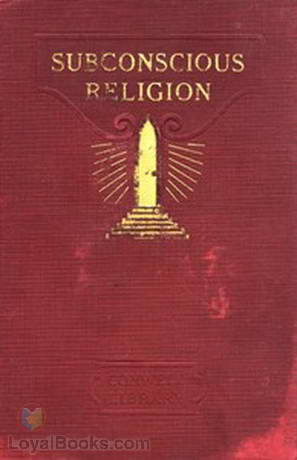Subconscious Religion By: Russell H. Conwell |
|---|

In "Subconscious Religion" by Russell H. Conwell, readers are taken on a thought-provoking journey that delves into the realm of spirituality and its connection to our subconscious minds. Through a series of captivating anecdotes, Conwell presents a compelling argument about the existence of an innate religious inclination within every individual.
One of the most striking aspects of this book is the author's ability to weave together various disciplines, including psychology, philosophy, and theology, in order to explore the depths of the human psyche. Conwell's writing style is engaging and accessible, making complex concepts easily understandable for readers of all backgrounds.
The central thesis of "Subconscious Religion" revolves around the notion that humans possess an inherent need for spirituality, which is deeply embedded in our subconscious. Conwell argues that even in the absence of organized religion, this innate sense of spirituality exerts a profound influence on our thoughts, actions, and overall lives. By tapping into this subconscious religious inclination, individuals can find purpose, meaning, and a sense of belonging.
Throughout the book, Conwell supports his arguments with a wealth of historical and psychological evidence. He cites examples from different cultures and time periods, as well as drawing from his own personal experiences, which gives his ideas a relatable and relatable quality. This multidimensional approach adds depth and credibility to his assertions, making them difficult to dismiss.
Moreover, Conwell's exploration of subconscious religion also serves as an invitation for readers to examine their own spiritual inclinations. Rather than advocating for a specific religious doctrine, he encourages individuals to turn inward, exploring the depths of their souls to uncover their own unique expressions of spirituality. This emphasis on personal introspection provides a refreshing alternative to the rigid dogmas often associated with religion.
However, despite its many strengths, "Subconscious Religion" is not without its flaws. At times, the author's arguments can seem repetitive, leading to a sense of redundancy. Additionally, some readers may find the book's reliance on anecdotes and personal experiences as lacking a more empirical foundation. While Conwell's anecdotes are undoubtedly illustrative and thought-provoking, they may not be sufficient to convince those seeking more concrete evidence.
In conclusion, "Subconscious Religion" by Russell H. Conwell offers a thought-provoking exploration of spirituality that goes beyond the realm of organized religions. By delving into the intricacies of our subconscious minds, Conwell challenges readers to consider the presence of an innate religious inclination within each of us. Through his multidisciplinary approach, the author presents a compelling argument while encouraging personal introspection. Although the book's repetition and anecdotal emphasis may deter some readers, it remains a valuable read for those interested in unraveling the enigmatic relationship between spirituality and the human subconscious. Does God Answer Christians Only? Conflicting Prayers Subconscious Religion Praying for Visions of Heaven Great Prayers Use of the Bible in Prayer Conclusions By RUSSELL H. CONWELL VOLUME 10 NATIONAL EXTENSION UNIVERSITY 597 Fifth Avenue, New York EFFECTIVE PRAYER Copyright, 1921, by Harper & Brothers Printed in the United States of America Chapter I Does God Answer Christians Only? What might be the consensus of opinion found in a digest of all the testimonies of mankind cannot be surmised, but it did not appear that God was "a respecter of persons" through those years of prayer at the Baptist Temple. The prevailing belief, however, was that God was more willing to answer the sincere disciple than he was to heed the requests of a great sinner. But the fact was also evident that God does answer the just and the unjust. The assertion of the blind man before the Pharisees that "God heareth not sinners" was evidently a quotation from the Pharisees' creed and not a gospel precept. As all have sinned and come short of the glory of God, no one would be heard if God would not hear sinners. Jesus was more inclined to heed the requests of John and Peter than he was to listen to the requests of the sacrilegious Sadducee... Continue reading book >>
|
| eBook Downloads | |
|---|---|
|
ePUB eBook • iBooks for iPhone and iPad • Nook • Sony Reader |
Kindle eBook • Mobi file format for Kindle |
|
Read eBook • Load eBook in browser |
Text File eBook • Computers • Windows • Mac |
| Review this book |
|---|